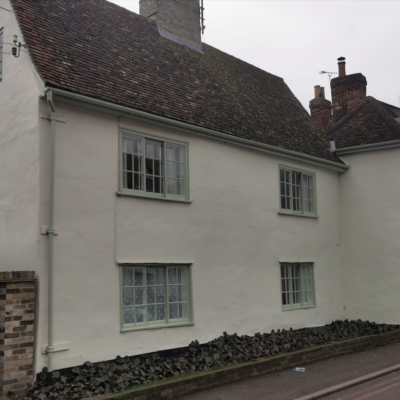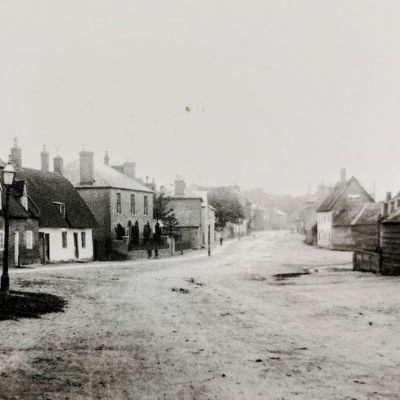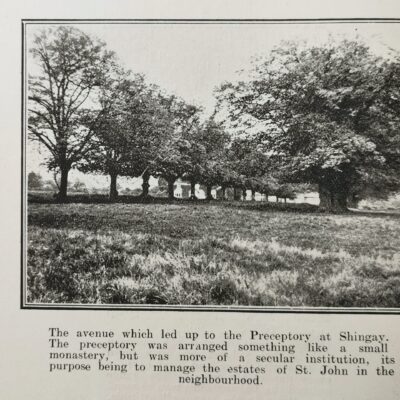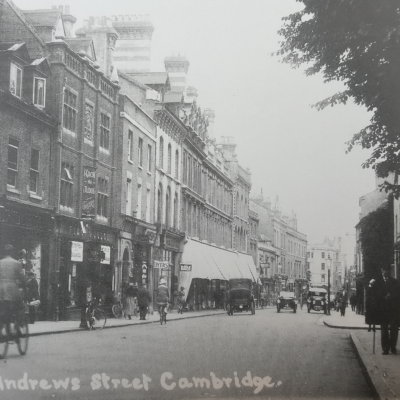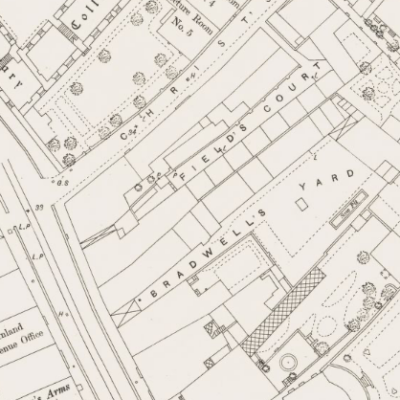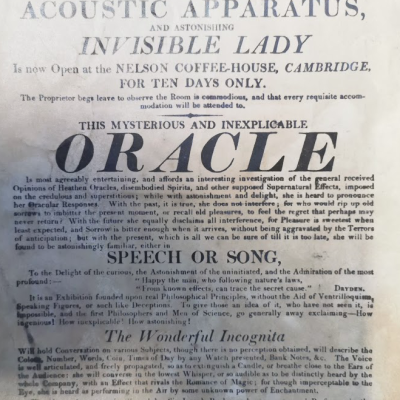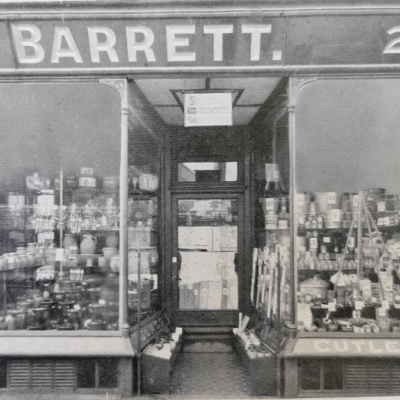Search by topic
- archaeology
- Building of Local Interest
- charity
- church
- crime
- dressmaker
- fire
- Great Eastern Railway
- Listed building
- Mapping Relief
- medieval
- oral history
- poverty
- Public House
- Rattee & Kett
- Religious House
- Roman
- scholar
- school
- Then and Now
- tudor
- women
- work
- world war one
- world war two
Search by text
55 / 55a St Andrew’s Street, Belmont
History of 55 / 55a St Andrew's Street
According to 1959 Royal Commission on Historical Monuments Survey of Cambridge:
Belmont … is of two storeys and cellars. The walls are of Gault brick with stone dressings, the roofs slated and tiled. It was built probably in 1822 but incorporates part of an early 18th-century structure forming the E wing; the SW block is self contained and seems to have contained separate offices from the first. Particulars of sale in 1838 describe it as held of the Dean and Chapter of Ely on a lease of forty years from 1822, being in private occupation, with a suite of solicitor’s offices adjoining.
Belmont is a neo-Classical building of some originality in composition.
According to Outside the Barnwell Gate, Rev Stokes (1915) p.32:
This was part of a property, with no.55, which belonged to the diocese of Ely since medieval times. The Rev Stokes in 1915 says that no. 55 was occupied by Mr Congreve and that historically this may have been the site of the grange referred to in connection with St Andrew the Great. It was probably the site that Mr John Delaport in 1763 “opened a Coffee Room next to Emmanuel College in a pleasant garden.” A long advertisement of this establishment can be found in Cooper’s Annals, iv, 328-9. In 1858 it was purchased by the late Alderman Charles Finch Foster, who built a manse for the Baptist Church opposite. The property was acquired by Emmanuel College in 1899.
Contribute
Do you have any information about the people or places in this article? If so, then please let us know using the Contact page or by emailing capturingcambridge@
License
This work is licensed under CC BY-NC-SA 4.0





